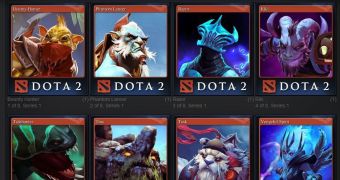Steam is one of the most important services when it comes to PC gaming and, with the addition of the Trading Cards after a short beta period, the company has added a layer of meta-gaming to digital distribution that makes playing via the Valve software an even more attractive proposition.
Players can earn cards for a number of games just by playing, and booster packs are added randomly based on the number of completed sets in the wider community.
At the same time, Steam is setting up a market that allows anyone to put their earned trading cards up for auction and get real world money for them.
Basically, Steam users are being paid for (at least a portion of) their gaming time.
The next logical step is to simply eliminate the playing part of the equation and pay gamers for the residual value of the games they have bought via Steam.
This would result in a general increase in wealth for the players, who would be then able to translate them to Valve in the form of new video game purchases.
A secondary market for digitally distributed titles is becoming a necessity, and Valve has the weight required to implement a solid market that has fair initial prices and then allows the community to re-value each title based on overall quality and scarcity of supply.
The ease of use for such a secondary market would also show developers and publishers how important replayability is for a video game.
I still play titles like Civilization IV: Colonization and would not re-sell it regardless of price, but I would have no problems getting rid of something like BioShock Infinite, despite the fact that I highly valued the experience that it offers.
Valve has not talked about any official plans for a secondary market, but one is needed in order to continue the growth in the PC gaming market.

 14 DAY TRIAL //
14 DAY TRIAL //